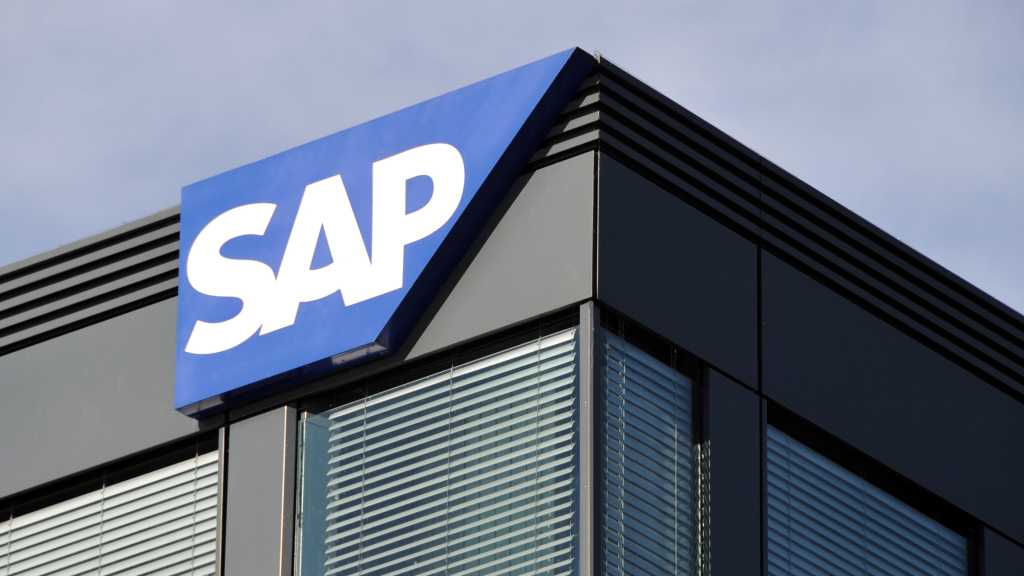The European Commission wants SAP customers to have the flexibility to mix and match maintenance and support contracts for each on-premises ERP instance.

SAP’s software support and maintenance services are the target of an antitrust investigation by the European Commission, which is concerned that the company forces customers to buy its services for longer, and for more licenses, than they need.
The Commission, which enforces antitrust policy in the European Union, opened a formal investigation on Thursday into the ways that SAP limits customers’ choices on where and when to buy maintenance and support services for its software.
The issue is of particular concern for users of SAP’s legacy ECC and Business Suite 7 applications, for which SAP will stop providing standard maintenance and support at the end of 2027. The company is offering extended support at a higher price through 2030, and a more limited transition offering through 2033, while companies such as Rimini Street are stepping in to offer third-party support through 2040, where customers’ contracts with SAP permit it.
“We are concerned that SAP may have restricted competition in this crucial aftermarket, by making it harder for rivals to compete, leaving European customers with fewer choices and higher costs,” said Teresa Ribera, the Commission’s Executive Vice-President for Clean, Just, and Competitive Transition, in a written statement. “This is why we want to have a closer look at SAP’s potentially distortive business practices, to make sure that companies that rely on SAP’s software can freely choose the maintenance and support services that best fits their business needs.”
The Commission has delivered a Preliminary Assessment of its case to SAP. The company now has one month to propose commitments to change its business practices to allay the Commission’s concerns. If those proposals area heading in the right direction, the Commission will invite interested parties to comment on them.
“If no commitments are submitted, we will still proceed with our investigation which may lead to a prohibition decision with fines,” a Commission spokesperson said via email.
The move comes days after reports emerged that SAP had offered concessions to the Commission to address antitrust concerns. The Commission had been looking into various aspects of the business software market since 2022.
SAP acknowledged the opening of formal proceedings on Thursday in a written statement, saying that the on-premises maintenance and support policies concerned “are based on long-standing standards that are common across the global software sector.” Its policies are in line with European competition rules, it said, adding that it takes the issues raised by the Commission seriously and is “working closely with the EU Commission to resolve them.”
The company sought to reassure shareholders that the Commission’s action would have no impact on its financial performance but had no word for customers about what changes they might expect.
What SAP is doing wrong
The Commission’s preliminary investigation is concerned with four aspects of SAP’s provision of maintenance and support services for its on-premises ERP software in the European Economic Area (EEA) consisting of the 27 member states of the EU plus Iceland, Liechtenstein, and Norway.
The first is SAP’s requirement that customers buy the same level of maintenance and support services from it, under the same pricing conditions, for all their on-premises SAP ERP software instances. This, the Commission said, “may prevent customers from ‘mixing and matching’ maintenance and support services from different suppliers at different price and support levels despite it being more convenient for them.”
Further, the Commission said, SAP won’t let its customers cancel maintenance and support services for software licenses they’re no longer using. This may result in customers paying for unwanted services, it said — as may the company’s practice of preventing customers from cancelling maintenance and support contracts when it extends the initial term of on-premises ERP licenses.
Finally, the Commission said, it is concerned that if a customer does manage to cancel its SAP maintenance and support contracts and subsequently returns to SAP, the company charges reinstatement and back-maintenance fees that, in some cases, “correspond to the amount customers would have paid if they had stayed with SAP all along.”
User concern
The managing director of German enterprise IT users association VOICE, Robin Kaufmann, said that many enterprises across Europe rely on SAP’s software and associated maintenance and support services to run their businesses. “We are concerned that certain SAP practices may limit competition and companies’ freedom of choice. For example, forcing all ERP instances to be maintained exclusively by SAP, preventing the cancellation of maintenance for unused licenses, or imposing automatic extensions and high re-entry fees. These practices not only increase costs but can potentially exclude competitors who also offer maintenance services,” he said via email.
For VOICE members, it’s essential to have a real choice between suppliers, with fair pricing and clear contract conditions, he said. “Users must have the freedom to source maintenance and support flexibly and according to their needs from different providers.”
What about Oracle?
When it began its inquiries in 2022 into sales of aftermarket support services for enterprise software, the Commission also looked into Oracle’s business practices, but has not yet taken any more decisive action against that company.
The Commission has chosen to focus on SAP for now, a spokesperson said, because of the company’s strong presence in the EEA in the ERP market. “However, the fact that the Commission is now investigating SAP’s conduct does not preclude investigations relating to the potentially anticompetitive conducts of other players if they are found to be dominant in other aftermarkets,” the spokesperson said via email.










